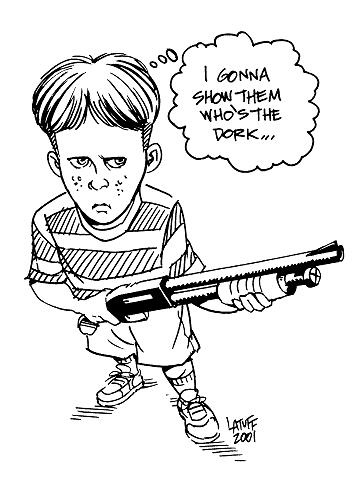By Elizabeth Winkler
As Alankaar Sharma, a social worker and researcher, tells Quartz, “Possessing a gun is considered by many men, if not most, as a straightforward way of subscribing to dominant masculinity.” In his view, the patriarchal system, which privileges a certain set of masculine behaviors, values, and practices, provides men with “a clear and justifiable reason to own guns.” It cements their identity as masculine men.
And for many men today, it’s an identity in particular need of cementing. In this May 2015 op-ed for The Los Angeles Times, sociologist Jennifer Carlson argues that men are clinging to guns as a way to address a broad range of social insecurities. Author of a book on the social practice of gun-carrying in America, Carlson found that gun owners often characterized their fathers’ generation as an era when men had important roles to play as providers and breadwinners.
But men’s participation in the labor force has been declining since the 1970s. As The Economist’s cover story, “The Weaker Sex,” explained earlier in 2015, poorly educated men in rich societies aren’t coping well in the 21st century. Changes in the home and the labor force, especially the loss of manufacturing jobs, have created a class of disgruntled, financially insecure men. Meanwhile, women, who now earn more university degrees than men, are surging into the workforce.
This tracks with Carlson’s research as well. “As men doubt their ability to provide,” she argues, “their desire to protect becomes all the more important. They see carrying a gun as a masculine duty and the gun itself as a vehicle for a hardened kind of care-work.” Some envision scenarios where they intervene with their guns to save women and children.


No comments:
Post a Comment